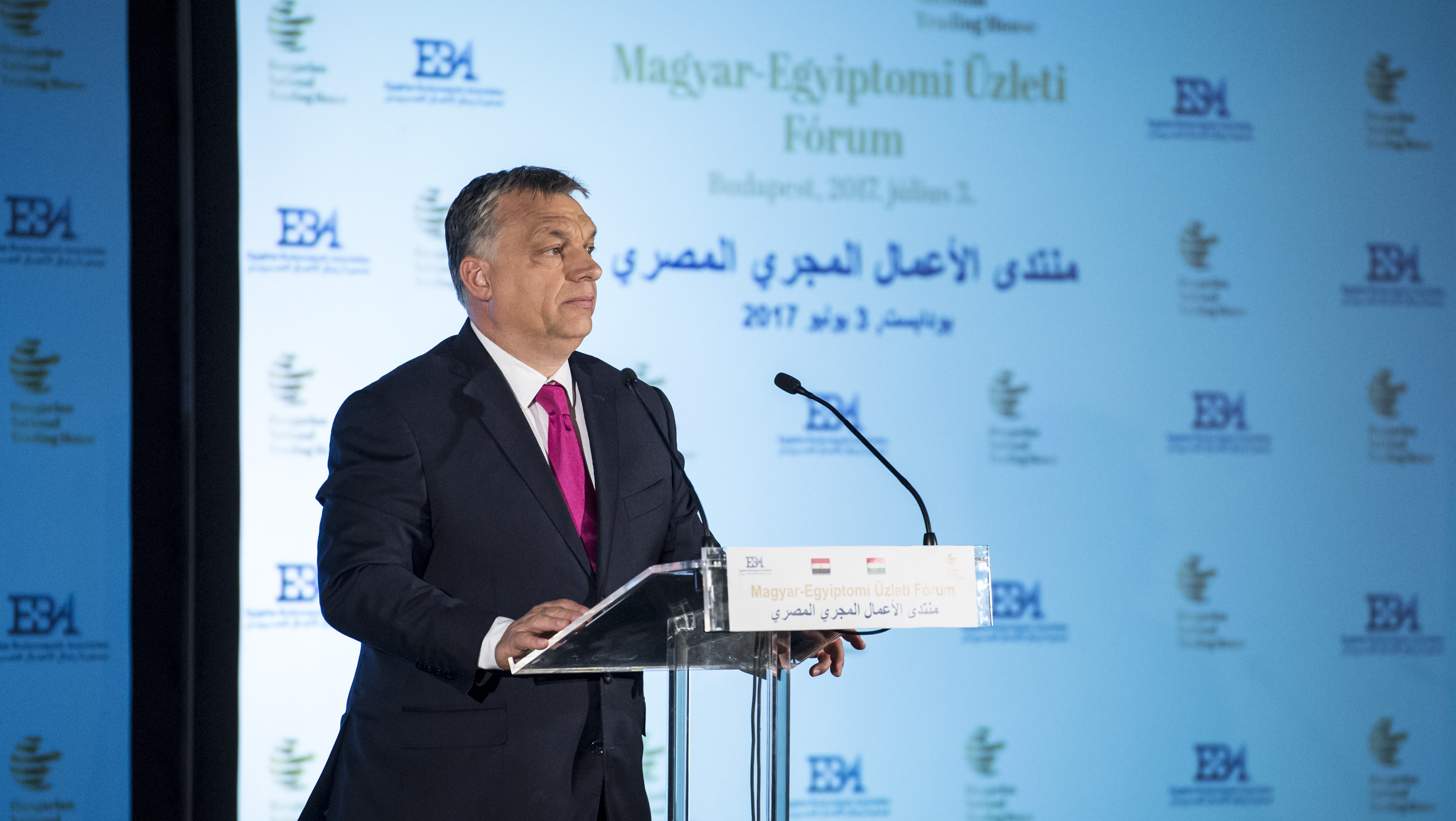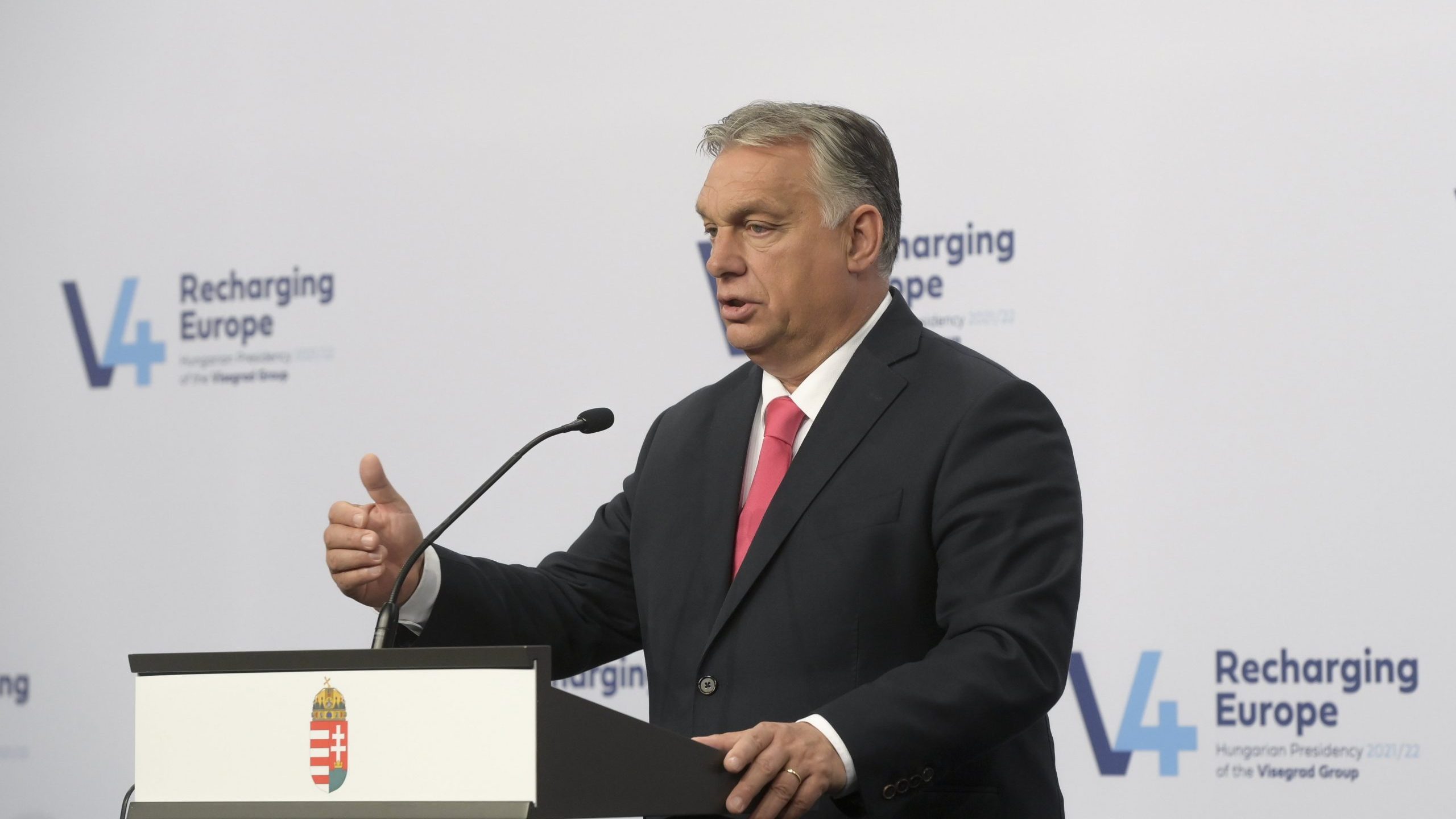
“We are holding our third business forum, and […] we have yet to achieve a major breakthrough in economic relations between the two countries”, the Prime Minister said. He pointed out, however, that a political relationship of trust between the two countries has developed, meaning that “we have a good starting-point for achieving a major economic breakthrough”, and “a wave of projects” which could dramatically increase the volume of Hungarian-Egyptian economic cooperation, projects and trade.

Speaking about the Hungarian economy to an audience of representatives from the two countries’ business communities, the Prime Minister noted that while Hungary has a population of only ten million, it is capable of generating annual exports worth USD 110 billion. In other words, he said, there is something “that we’re very good at”: building an open, export-oriented economy that enables a country of this size to respond flexibly to global demand and capital flows.
Mr. Orbán also spoke about Hungary’s workfare economic model, which sets out to achieve full employment. In relation to this, he stressed that if seven years ago someone admitted to having the goal of building an economy with full employment, “the customary response would be a smile”, but such a reaction “is perhaps no longer so fashionable”. He noted that this goal also “happens to feature” in the election programme of Germany’s Christian Democrats.

The Prime Minister observed that, in relation to Egypt, Hungary has created a flexible, supportive policy and attitude: “we understand the Egyptian people’s rejection of any outside interference in their internal affairs”. The European Union should also adopt a more constructive approach to the North African country, he remarked.
Mr. Orbán referred back to the first Hungarian-Egyptian business forum, held two years ago. At that time, before the outbreak of the migration crisis, the parties had noted that there will be no stability in Europe without stability in Egypt. He said that “Today this is all I wish to add to that thought: if a destabilised Syria could cause Europe as much trouble as it has, how much trouble would be caused by a destabilised Egypt, without President Sisi?” In his view, therefore, Europe should speak respectfully about Egypt and its President, whose work to stabilise his country has made him “a historic figure”.
The Prime Minister also praised Egypt’s success in holding back migration, adding that “In order to address the migration crisis we must also conclude a comprehensive agreement with Egypt like the ones we have signed with other countries in the region”.

He further remarked that demand for the one hundred Hungarian state-funded university scholarships available to Egyptian students for the next academic year outnumbers supply by a factor of five. He therefore promised to increase the number of scholarships.
Regarding the situation in the Gulf region, Mr. Orbán said that Hungary is committed to the soonest possible negotiated resolution of the Qatar diplomatic crisis.
At the forum President Sisi said that political relations between Egypt and Hungary are excellent, and it is to be hoped that the foundations of these relations will enable more and more Hungarian investors to take part in projects within the Egyptian economy.
He pointed out that Egypt welcomes foreign investors – primarily in agriculture, industry and energy developments. With a population of almost 100 million, Egypt is a regional gateway to North Africa and the whole of Africa, he said.

Egypt is a stable country, President Sisi added, and the Egyptian people would like its economy to grow as fast as possible. After the upheavals following the 2011 revolution, he said, the country sought to restructure its economy, and this involved increased state and foreign investments.
Egypt is making every effort to improve its economic and trade relations, the President said, and therefore its government supports the largest possible amount of inward investment. Meetings such as the Hungarian-Egyptian business forum greatly contribute to the attainment of these aspirations, Mr. Sisi highlighted.

